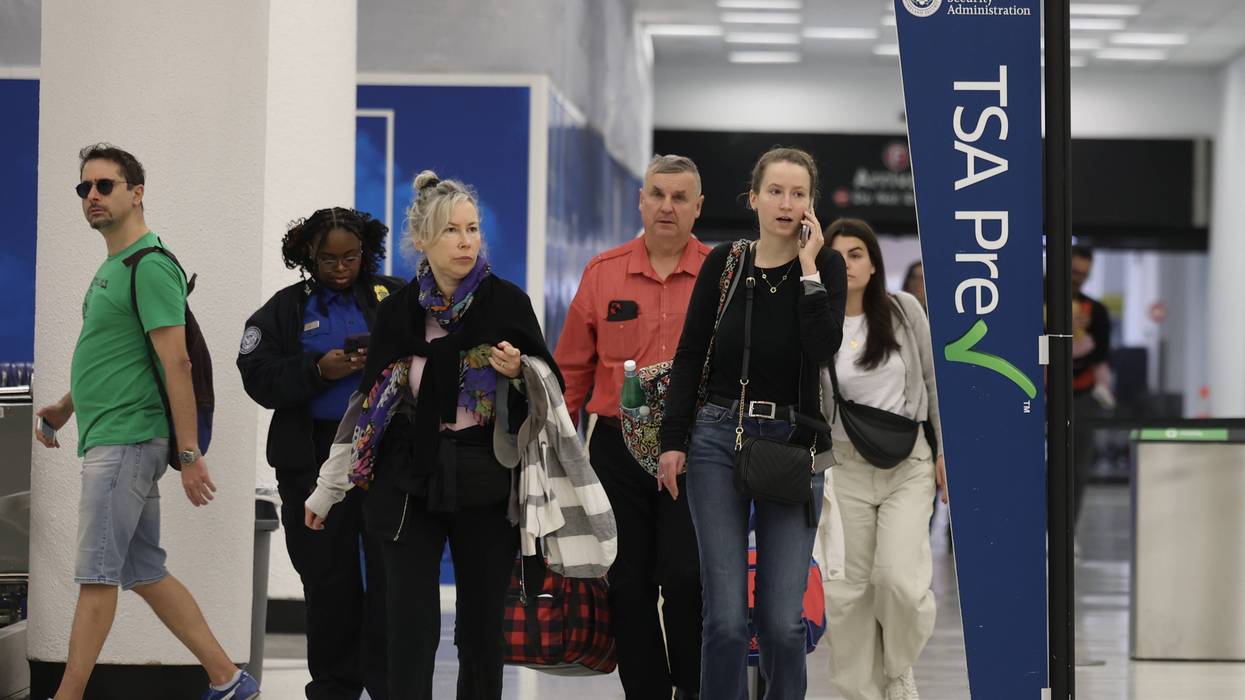Note: The revised North American Free Trade Agreement (NAFTA) goes into effect today, July 1. The U.S. Senate passed the new NAFTA in January 2020 by a margin of 89 to 10 after the U.S. House of Representatives voted by a margin of 385 to 41 in December 2019.
On paper the new NAFTA--with improved labor terms added and extreme Big Pharma monopolies and ISDS investor rights removed -- is better than the original, but it won't benefit people unless it's effectively enforced.
It's a terrible start that on Day One of a deal Trump said would transform trade, a leading Mexican labor lawyer has spent weeks in jail on trumped up charges for helping workers use USMCA's labor rights and Mexico's new USMCA--compliant labor law is bogged down by hundreds of lawsuits aimed at derailing it.
Maybe Trump hoped to distract from myriad failures by spotlighting the new NAFTA on July 1, but it's also the date that 100 of the 600 legal challenges against the pact's labor rights rise to Mexico's Supreme Court and Susana Prieto, a famous Mexican labor lawyer detained for weeks for helping workers organize a union, has a high visibility hearing.
Meanwhile, Trump's claims that the new NAFTA will restore hundreds of thousands of manufacturing jobs have proved baseless as U.S. auto firms announced plans to increase production in Mexico from Ford's Mustang electric SUV to GM closing U.S. plants and moving popular vehicle lines to Mexico. But the U.S. Department of Labor has certified more than 175,000 Americans as losing jobs to trade during the Trump administration's first years while the NAFTA trade deficit jumped 88% under Trump.
The new NAFTA's greatest impact may be that it began a long overdue rethink of the U.S. trade-pact model. The unusually large, bipartisan congressional votes on the new NAFTA showed that to be viable today, U.S. trade pacts no longer can include extreme corporate investor privileges or broad monopolies for Big Pharma and must have enforceable labor and environmental standards. The 2016 Trans-Pacific Partnership, which failed these tests, never got close to majority congressional support.
Renegotiating the existing NAFTA to try to reduce its ongoing damage is not the same as crafting a good trade deal that creates jobs, raises wages and protects the environment and public health. The new NAFTA is not a template, but rather sets the floor from which we will fight for trade policies that put working people and the planet first. Any new trade deals must include climate standards, stronger rules to stop race-to-the-bottom outsourcing of jobs and pollution, and enforceable rules against currency misvaluation and not limit protections needed to ensure our food and products are safe, our privacy is protected and big banks do not crash the economy.
BACKGROUND INFO
Susana Prieto Terrazas, a well-known Mexican labor lawyer, has been locked up since June 8 for trying to use the core labor right guaranteed by the revised NAFTA and Mexico's new labor law; a July 1 hearing is scheduled after several punitive bail denials. Prieto, a key advocate for exploited workers in border maquiladora factories in Matamoros and Juarez, has been held without bail for three weeks on trumped-up charges of "mutiny, threats and coercion" after trying to register an independent union to replace a corrupt "protection" union in Matamoros. Prieto became well-known in Mexico for helping maquiladora workers win higher wages in factories along the Texas border last year. Recently, she supported workers demanding COVID-19 safety measures after dozens of maquiladora workers died from workplace coronavirus exposure. Wildcat strikes and mass protests have grown throughout the border region as U.S. companies and officials push for plants to reopen without safety measures. Dozens of members of the U.S. House of Representatives sent a letter yesterday demanding Prieto's release. At June 17 hearings, members of Congress raised concerns about Prieto's arrest with the U.S. Trade Representative, who confirmed he was closely following her case and found it a "bad indicator" of compliance with NAFTA's revised labor standards. Prieto livestreamed her arrest as she tried to register the Independent Union of Industrial and Service Workers "Movimiento 20/32," chosen by workers to replace a "protection" union. Last week, Prieto's daughter delivered a letter from U.S. unions and civil society groups to the Mexican National Human Rights Commission seeking help on Prieto's release. U.S. fair trade activists will deliver the letter to Mexican consulates nationwide on July 1. After decades of worker intimidation, Mexican manufacturing wages are now 40% lower than those in China. The Department of Labor has certified more than one million U.S. jobs (1,015,948) as lost to NAFTA just under one narrow retraining program called Trade Adjustment Assistance, which represents a significant undercount of total jobs lost.*
The first 100 of 600 challenges to Mexico's new labor law will hit Mexico's Supreme Court on its July 1 reopening. The new NAFTA requires that "protection" contracts signed by unions not elected by workers all be reviewed and that contracts be approved directly by workers within four years after the revised NAFTA goes into effect. This requirement is at the heart of the reforms to Mexico's labor laws enacted on May 1, 2019. Under the new labor law, workers in Mexico could finally have legal protections to fight to raise abysmally low wages. This would also reduce incentives to outsource U.S. jobs to Mexico, benefiting U.S. workers. Within weeks of the new law's enactment, hundreds of corrupt local "protection" unions and other interests opposed to reform began to file what are now more than 600 lawsuits, which both try to block the law's application to specific union contracts and workplaces and to gut the law altogether on grounds that it is unconstitutional. Mexico's judiciary has been out of session since mid-March for COVID-19 precautions. On July 1, the court system goes back into operation, with the first 100 challenges hitting Mexico's Supreme Court. If the court rules against the challenged terms, Mexico will be in violation of NAFTA labor obligations that are essential if the new deal is to slow U.S. job outsourcing. This memo has the latest updates on the cases.
The Department of Labor has certified 176,982 trade-related job losses during Trump's presidency, and the manufacturing sector is hurting. Under the narrow Trade Adjustment Assistance worker training program alone, 176,982 workers have been certified as losing jobs to trade since the 2017 start of the Trump administration. The data mainly covers 2017-2018, as there is typically a 12-18 month gap between layoff dates and certification. Whether the new NAFTA can slow ongoing job outsourcing or the 88% increase in the overall NAFTA trade deficit during the Trump administration remains to be seen over time. What is clear now is that the U.S. manufacturing sector has been severely harmed by the ongoing COVID-19 pandemic, with 1.1 million manufacturing jobs lost in May 2020 compared with the same month last year.
*Data Note: The trade data is sourced from the U.S. Bureau of Economic Analysis and the U.S. Census Bureau. We present deficit figures adjusted for inflation to the base month of May 2020. The overall percentage change in the U.S.-NAFTA trade deficit under Donald Trump represent the change in total goods and services trade deficit since 2016, Barack Obama's last year, and 2019, the last full year of data available during the Trump administration. Manufacturing job data is sourced from the U.S. Bureau of Labor Statistics. The government-certified job loss data is sourced from Public Citizen's Trade Adjustment Assistance (TAA) Database. The U.S. Department of Labor certified trade-impacted workplaces under its TAA program. This program provides a list of trade-related job losses and job retraining and extended unemployment benefits to workers who lose jobs to trade. TAA is a narrow program, covering only a subset of workers who lose jobs to trade. It does not provide a comprehensive list of facilities or jobs that have been offshored or lost to import competition. Although the TAA data represent a significant undercount of trade-related job losses, TAA is the only government program that provides information about job losses officially certified by the U.S. government to be trade-related. Public Citizen provides an easily searchable version of the TAA database. Please review our guide on how to interpret the data here and the technical documentation here.





